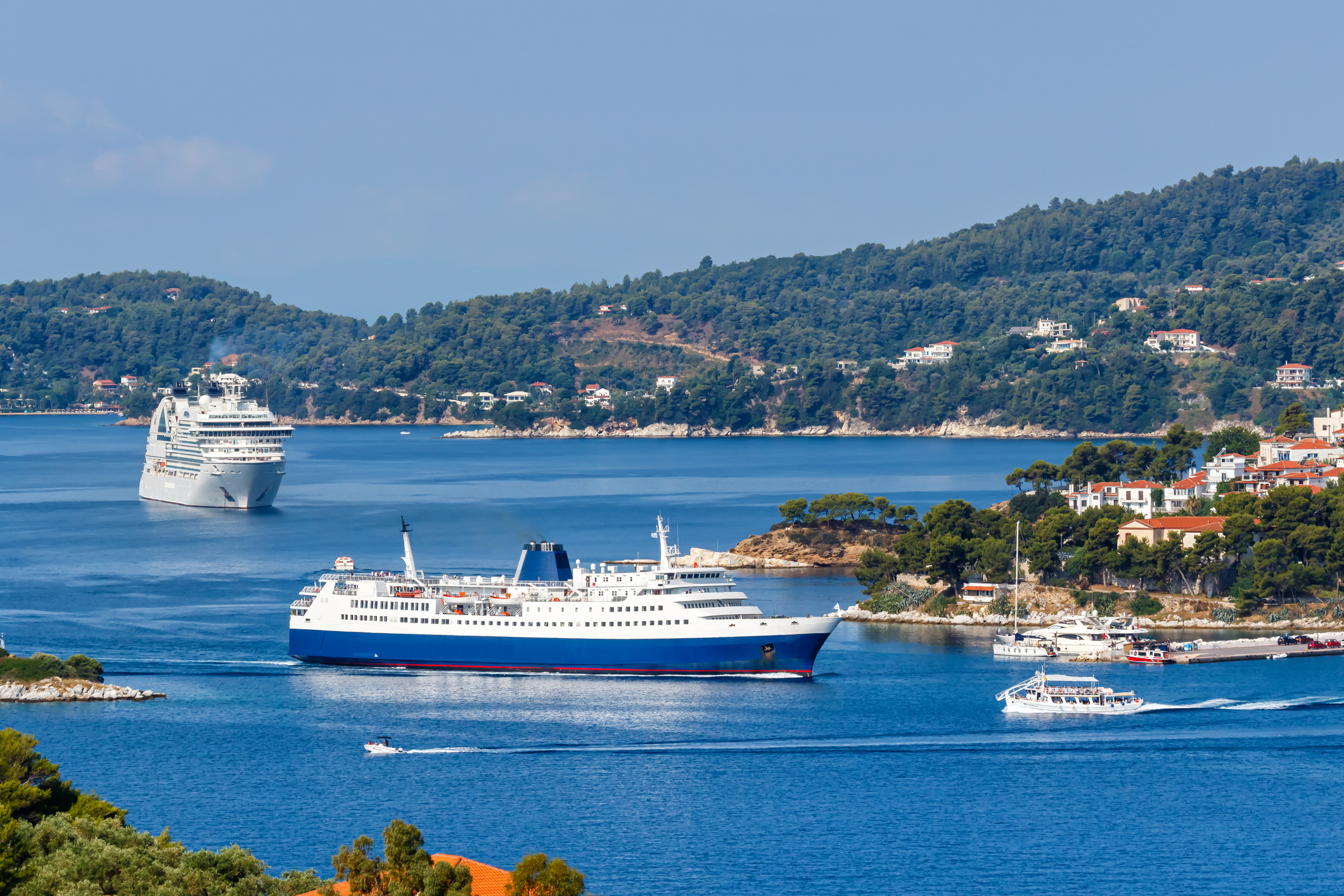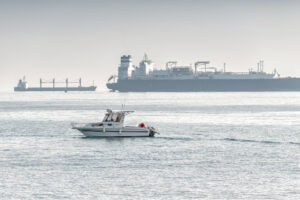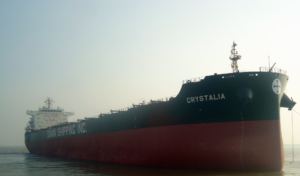Greek Prime Minister Kyriakos Mitsotakis on Monday said that his government was creating two new marine national parks, one in the Ionian Sea, and the other in the southern Cyclades, in the iconic Aegean, fulfilling a promise he made at the United Nations Oceans conference on France’s Mediterranean coast in June.
These parks will be among the largest marine protected areas in the entire Mediterranean.
According to the Prime Minister, “They will allow us to meet the target of protecting 30% of our territorial waters by 2030 way ahead of schedule.”
He added that the parks will become vast sanctuaries of marine life beneath the waves.
“Greece can become a voice for the sea, in Europe and beyond,” he emphasized.
The two new national marine parks in the southern Cyclades and Ionian Sea will be open for public consultation until September 22, in accordance with the national and EU legislation, for interested citizens and organizations to submit their comments and suggestions. These will be taken into consideration for the final formation of the Ionian National Marine Park and the Southern Aegean National Marine Park 1 – Southern Cyclades.
Interestingly, according to officials, the final size of the parks exceeds initial projections. Their area in the Ionian and southern Cyclades exceeds the initial commitments of the prime minister, reaching 27,500 km², while the creation of the marine parks starts from these two areas “because these are particularly sensitive environmental ecosystems,” the Greek minister for the environment and energy Stavros Papastavrou said to Greek television network Skai tv.
Papastavrou pointed out that the creation of marine parks extends a safety net over 35% of the country’s territorial waters, an effort that, as he said, has already been received positively by environmental organizations. He emphasized the fact that with this initiative, Greece is pioneering at a European level, as the obligation to create marine parks in 30% of its territorial waters by 2030 will be implemented much earlier, in 2026, and will cover a larger percentage, at 35%.
Turkish Reaction
Reacting to Greece’s establishment of the two new national marine parks announced by prime minister Kyriakos Mitsotakis, the Turkish ministry of foreign affairs issued a statement on Monday.
Calling the move a “unilateral action,” the ministry claims that in its statement dated 9 April 2024, issued immediately after Greece announced this initiative, it was reiterated that “the Marine Parks to be declared in the Aegean Sea would not have any legal consequences in the context of the interrelated Aegean issues between the two countries, including certain geographical features whose sovereignty is not ceded to Greece by international treaties.”
“Unilateral actions should be avoided in closed or semi-enclosed seas such as the Aegean and the Mediterranean,” the Turkish ministry stresses, stating that “Türkiye will announce its projects for protection of the environment in its marine areas in the coming days.”
Greek Prime Minister’s Statement:
“The sea has always been Greece’s silent force. It is part of who we are – shaping our civilization and our history, feeding our people and nurturing our spirit.
“Last month at the UN Oceans conference on France’s Mediterranean coast, I made a promise to honour that unique marine heritage — and to protect it for generations to come.
“Today I am delivering on that promise with the establishment of two new Marine National Parks – one in the Ionian Sea, and the other in the Southern Cyclades, in the iconic Aegean.
“These parks will be among the largest marine protected areas in the entire Mediterranean.
“They will allow us to meet the target of protecting 30% of our territorial waters by 2030 way ahead of schedule.
“They will be vast sanctuaries for life beneath the waves.
“They will also help to preserve ecosystems, restore balance, and set a bold new standard for marine conservation.
“And perhaps most importantly, inside these marine zones the hugely damaging practice of bottom trawling will be banned.
“If you’ve watched Sir David Attenborough’s extraordinary new documentary “Ocean” you will know why the creation of these marine parks matters so much.
“Ocean” is a profoundly moving film, but one that both informs and inspires. And it reminded me, as I hope it reminds all of us, that the sea is not just beautiful scenery. It is life itself. Delicate. Powerful. And under threat.
“Sir David’s film deepened my commitment to go beyond managing the sea — to reimagine our relationship with it. Not as owners. But as custodians.
“We will protect, yes. But we will also educate, collaborate, and lead.
“Working with local communities, local fishermen, scientists, but also global partners, we will make these parks examples of what is possible. By doing this, Greece can be a voice for the sea, in Europe, but also beyond.
“Because when we protect our ocean, we protect our own future.”
Full Statement by the Greek Ministry of Foreign Affairs:
“The establishment of Marine National Parks in the Ionian and Aegean Seas is based purely on environmental criteria in areas under Greek sovereignty.
“Any reference to enclosed or semi-enclosed seas is entirely unfounded.
The legal status of the Aegean Sea is clear. Greek sovereignty over this area has been clearly and permanently defined by international treaties.
“Greece has consistently been in favour of dialogue with Türkiye, intending to resolve the only Greek-Turkish dispute, in accordance with international law, namely the delimitation of the continental shelf and the Exclusive Economic Zone between the two countries.
“The exercise of rights stemming from Greek sovereignty is not subject to negotiation.”
Full Statement by the Turkish Ministry of Foreign Affairs:
“Greece declared Marine Parks in the Aegean Sea and the Ionian Sea on 21 July 2025.
“In our statement dated 9 April 2024, issued immediately after Greece announced this initiative, it was reiterated that the Marine Parks to be declared in the Aegean Sea would not have any legal consequences in the context of the interrelated Aegean issues between the two countries, including certain geographical features whose sovereignty is not ceded to Greece by international treaties. The issues underlined in the said statement remain valid today.
“Unilateral actions should be avoided in closed or semi-enclosed seas such as the Aegean and the Mediterranean. International maritime law encourages cooperation, including environmental issues, between coastal states in closed or semi-enclosed seas. In this context, we reiterate that Türkiye remains ready to cooperate with Greece, as one of the two coastal states in the Aegean Sea.
“On the other hand, we take this opportunity to underline that efforts to exploit universal values such as the protection of environment in the context of interrelated Aegean issues and issues related to the status of some islands, islets and rocks whose sovereignty has not been ceded to Greece by international treaties, will not have any legal consequences today, as they did not in the past.
“Türkiye will announce its projects for protection of the environment in its marine areas in the coming days.
“Türkiye maintains its position that a sincere and comprehensive approach should be adopted to resolve issues on the basis of international law, equity and good neighborliness within the framework of the Athens Declaration on Friendly Relations and Good Neighborliness, dated 7 December 2023, which prioritizes dialogue and cooperation and reflects the spirit that both parties want to uphold in Turkish-Greek relations.”



